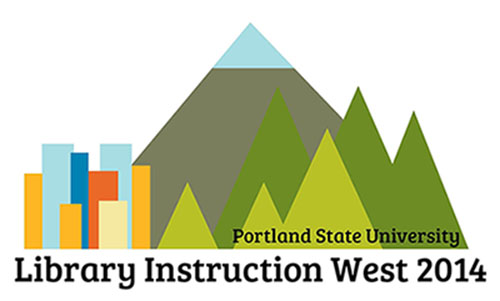Start Date
7-25-2014 9:45 AM
End Date
7-25-2014 11:45 AM
Subjects
Threshold logic, Information literacy, Information services -- User education, Internet searching -- Evaluation
Description
Purpose- Advancements in online discovery require academic librarians to develop new means of teaching and assessing information literacy, with an emphasis on having students employ critical thinking to evaluate sources.
Design/methodology/approach- This conceptual paper analyzes how the threshold concept “format as a process” could be incorporated into information literacy instruction sessions which address web-scale discovery services and other online search tools. General guidelines for applying this concept are included, along with potential classroom activities and assessments.
Findings- Format as a process provides a valuable framework for evaluating information, though librarians need to be mindful of how they present the concept to students. Instruction must be focused on fostering critical thinking skills, rather than how to perform tasks, and assessment must be qualitative in nature.
Practical implications- These changes in online searching mean that information literacy programs will need to alter their approach to instruction and move beyond the “one shot” paradigm. Critical evaluation is a sustainable, lifelong skill which will continue to serve students after graduation, but developing that ability requires academic librarians to fulfill new roles in the classroom and on campus.
Originality/value- The literature surrounding instruction of web-scale discovery is still limited, and does not incorporate the threshold concepts provided in ACRL’s Framework for Information Literacy in Higher Education. This paper concentrates on one such concept, as well as discusses how future concepts could be addressed.
The presentation associated with this article can be accessed at http://archives.pdx.edu/ds/psu/14493.
Persistent Identifier
http://archives.pdx.edu/ds/psu/14514
Included in
Teaching “Format as a Process” In an Era of Web-scale Discovery
Purpose- Advancements in online discovery require academic librarians to develop new means of teaching and assessing information literacy, with an emphasis on having students employ critical thinking to evaluate sources.
Design/methodology/approach- This conceptual paper analyzes how the threshold concept “format as a process” could be incorporated into information literacy instruction sessions which address web-scale discovery services and other online search tools. General guidelines for applying this concept are included, along with potential classroom activities and assessments.
Findings- Format as a process provides a valuable framework for evaluating information, though librarians need to be mindful of how they present the concept to students. Instruction must be focused on fostering critical thinking skills, rather than how to perform tasks, and assessment must be qualitative in nature.
Practical implications- These changes in online searching mean that information literacy programs will need to alter their approach to instruction and move beyond the “one shot” paradigm. Critical evaluation is a sustainable, lifelong skill which will continue to serve students after graduation, but developing that ability requires academic librarians to fulfill new roles in the classroom and on campus.
Originality/value- The literature surrounding instruction of web-scale discovery is still limited, and does not incorporate the threshold concepts provided in ACRL’s Framework for Information Literacy in Higher Education. This paper concentrates on one such concept, as well as discusses how future concepts could be addressed.
The presentation associated with this article can be accessed at http://archives.pdx.edu/ds/psu/14493.



Notes
This is the authors' accepted version of an article that was subsequently published in Reference Services Review, Volume 43 Issue 1 by Emerald Group Publishing. The version of record may be found at: http://dx.doi.org/10.1108/RSR-07-2014-0023.
This article is (c) Emerald Group Publishing and permission has been granted for this version to appear here (http://pdxscholar.library.pdx.edu/). Emerald does not grant permission for this article to be further copied/distributed or hosted elsewhere without the express permission from Emerald Group Publishing Limited.